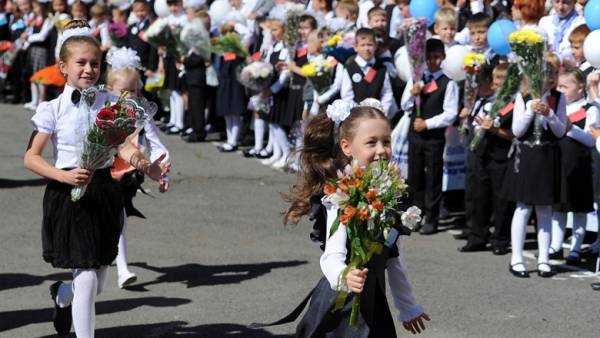Half of Russians are experiencing difficulties in preparing children for the new school year
While 40% of Russians believe the Russian system of school education is ineffective.
Upstairs
Preparing a child for the upcoming school year causes financial hardship, 51% of parents polled by the all-Russia centre of studying of public opinion (VTSIOM). At the same time, almost half of Russians (45%) believe that modern educators teach children worse compared to how they were taught in his time, writes TASS, citing the poll.
“Every second of the respondents (51%) preparation for September 1 is causing some financial difficulties, but they are seen as feasible. For every fifth (21%) — fees by September 1 are associated with considerable expenditure, which must be prepared in advance, to save” — quoted excerpt from the research material TASS.
According to the survey, the quality of modern schooling in Russia are satisfied with 67% of respondents.
While 40% of respondents believe the Russian system of school education is ineffective. In their opinion, it does not give the child the necessary skills and knowledge.
On the compliance of international standards of school education in Russia was declared by 36% of parents surveyed, 33% hold the opposite opinion, and 9% think it is advanced by world standards.
45% of respondents believe that modern educators teach children worse than they themselves were taught in their time. While for 31% it is important that the teacher know how to approach a student for 30% of Russians — was competent and presented material in an accessible form. That acquired in school knowledge is not enough to get the unified state exam (use) score the highest voted 72% of parents. In their view, this requires additional tutoring.
The poll of Russians held in the period from 23 to 25 August this year. It was attended by 1.2 thousand respondents aged from 25 to 45 years, who have children of school age. The study was conducted through telephone interviews with a random selection of landline and mobile numbers involved in Russia.